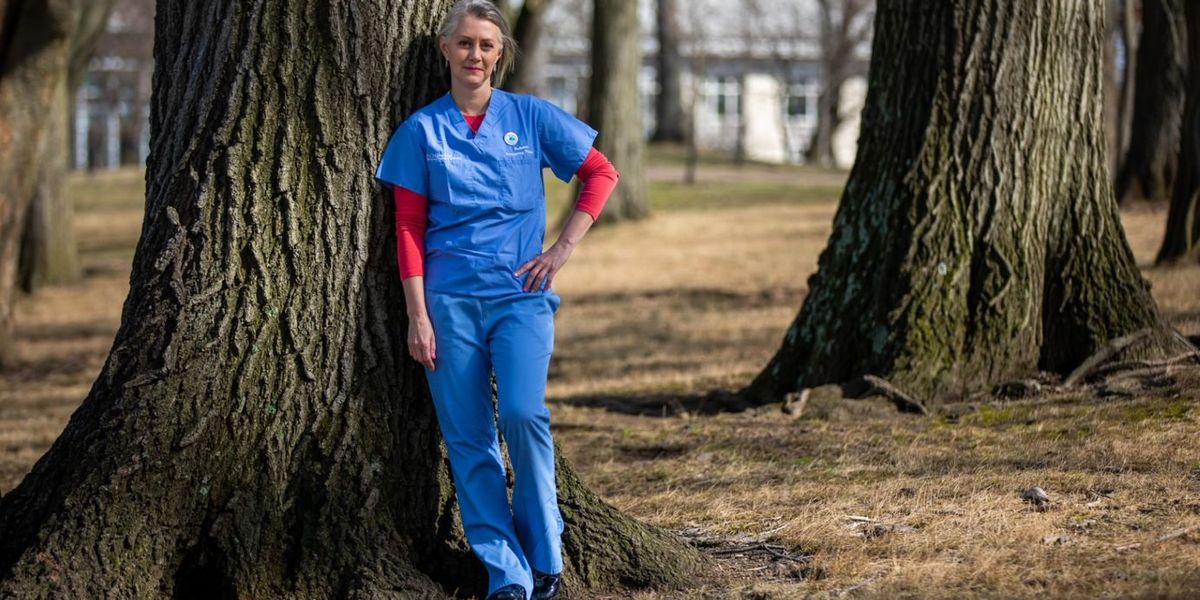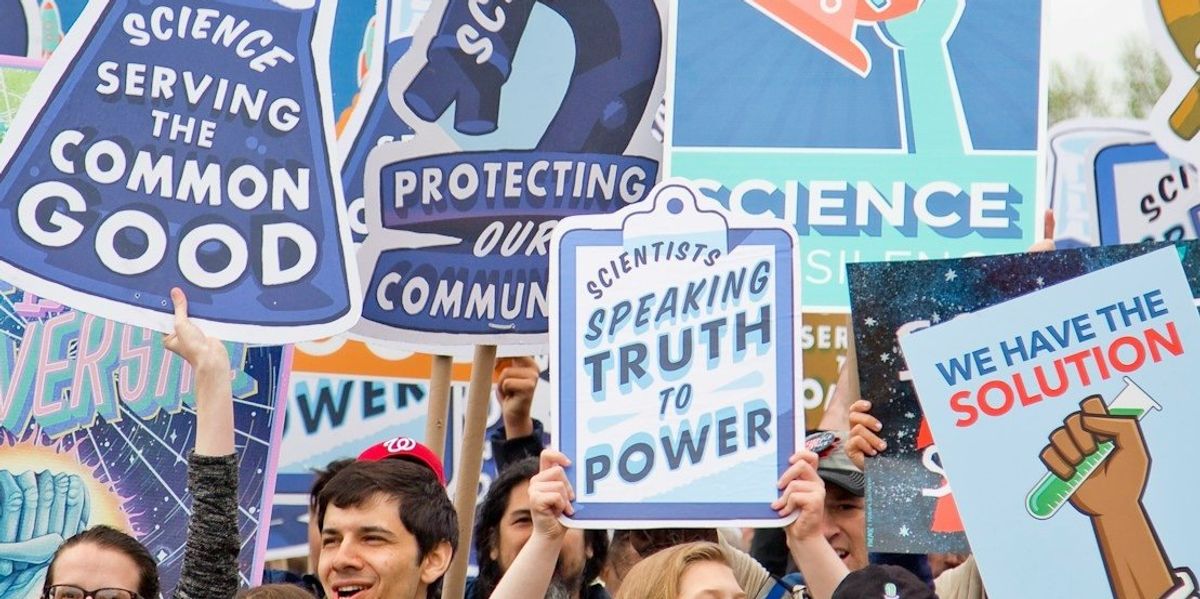
Pittsburgh-area hospitals tackling climate emissions, pollution and waste
“We realized early on that we need to be part of the work, not just make an ask of the system.”
PITTSBURGH — A few years ago, Dr. Michael Boninger was thinking of leaving healthcare to pursue a job that would help address what he saw as the most pressing health issue of our time: the climate crisis.
“I want the planet to be a safe place for my kids and my grandkids and the next generation,” Boninger, who specializes in physical medicine and rehabilitation, told Environmental Health News (EHN).
He researched what jobs he might qualify for, but the answer was right in front of him: The healthcare industry takes a significant toll on the climate and human health.
The sector accounts for an estimated 4.4% of total global greenhouse gas emissions and up to 9.8% of U.S. greenhouse gas emissions. Health damages from the U.S. healthcare sector’s pollution – including greenhouse gasses, carcinogenic emissions and other toxic air pollutants – from 2003-2013 are estimated to have cost Americans more than 400,000 years of full health, defined as years lived free of disease or disability.
After learning about the industry’s sustainability challenges, Boninger investigated how these issues were addressed at the University of Pittsburgh Medical Center (UPMC), where he’d worked since 1994, first as a physician and researcher with expertise in spinal cord injuries, then in a series of leadership roles. UPMC has more than 40 hospitals and 800 doctors' offices and outpatient centers. Most are in Pennsylvania, with some in Maryland and New York and a handful of facilities abroad.
“I looked at what UPMC had published and their outward-facing work on sustainability,” he said. “It was not impressive.”
He asked for a new job as a leader in sustainability at UPMC.
Around the same time, unbeknownst to Boninger, a small group of physicians calling themselves “Clinicians for Climate Action” were strategizing about sustainability at UPMC. Boninger said the health system’s president received his job request around the same time he got a letter from Clinicians for Climate Action with specific requests aimed at making UPMC’s operations more sustainable.
“I joined Clinicians for Climate Action immediately, but it actually worked out well that we approached this issue separately,” Boninger said. “It became a series of events that prompted UPMC to take action.”
Boninger and Clinicians for Climate Action aren’t alone — Doctors, nurses, and hospital staff across the country are leading the charge to making hospitals more sustainable. At the national CleanMed conference, held in Pittsburgh in May, health care workers who had successfully initiated new sustainability programs or policies at their organizations shared sustainability projects they’d successfully initiated at their institutions, including things like collecting and donating unused medical supplies, implementing zero waste goals, and replacing single-use products like medical masks and surgical tools with reusable versions.
Strategies for sustainability at hospitals

Dr. Michael Boninger
Credit: UPMC
Boninger was appointed as UPMC’s chief medical sustainability officer in September 2022, and went straight to work on the requests in Clinicians for Climate Action’s letter.
Their requests included signing the White House Climate Pledge, developing a climate plan by 2023 that would chart a course to carbon neutrality, committing to 100% renewable electricity at UPMC facilities by 2030, creating a climate and health center to support climate and environmental justice efforts both internally and in surrounding communities, integrating environmental quality metrics into educational, research, and operational goals, and divesting from fossil fuels.
The group didn’t make the letter public—they opted to work internally before adding public pressure. Because most of their initial requests involved planning and setting goals that could ultimately save UPMC money and bolster the institution’s public image, there weren’t a lot of barriers to their initial round of requests. Today, UPMC has either accomplished or set in motion plans related to most of these goals, with the exception of divestment, which has temporarily taken a backseat to other initiatives.
As a result of their efforts, UPMC has opened a new center for sustainability, which is creating sustainability teams at 40 UPMC hospitals with working groups focused on various priorities like food service and transportation. The center is also partnering with national regional nonprofits like Practice Greenhealth and Sustainable Pittsburgh. Education is also an important part of their work — the University of Pittsburgh School of Medicine now incorporates climate medicine as part of its population health course and offers a climate medicine elective course to med students.
The strategies they employed to get these plans in motion—working internally, demonstrating potential for cost savings, and acknowledging that institutional change takes time and requesting commitments to long-term sustainability goals—have worked at other institutions, too. Particularly when it comes to cost savings.
At Allegheny Health Network, a Pittsburgh-area subsidiary of Highmark Health with more than 300 clinical offices in the region, sustainability initiatives have focused largely on energy efficiency, recycling and waste reduction.
Allegheny Health Network was able to save $60,000 a year on energy costs simply by upgrading the lights in most of their facilities to LED bulbs — a change they say will ultimately save 465 tons of climate-warming emissions.
Dan Lesinsky, Allegheny Health Network’s energy manager, told EHN, “It’s easy to get support from every side when you’re able to demonstrate both greenhouse gas savings and savings on the bottom line.”
Meanwhile, some local environmental health advocacy groups have criticized both UPMC and Allegheny Health Network for inaction on some of the region's most pressing issues. The Breathe Project, a Pittsburgh-based collaborative of more than 50 regional and national environmental advocacy groups, recently invited executives from both health systems to attend a community town hall meeting about the region's ongoing problems with poor air quality, which is largely driven by industrial pollution, but neither responded. The group called the health systems' lack of engagement about air quality "unacceptable," and devoted time during the town hall meeting to a discussion about the role the health systems should play in addressing the health impacts of air pollution in the region.
A Breathe Project press statement also noted that Health Care Without Harm, the organization that hosts the annual CleanMed conference, recently gave environmental excellence awards to 25 of the leading U.S. hospitals honored for their sustainability commitment, and recognized an additional 368 health care organizations for leadership across 11 areas of sustainability through its Practice Greenhealth program, and that neither UPMC nor Allegheny Health Network qualified for either award.
Big goals, small sustainability projects

Clinicians for Climate Action's one-year anniversary celebration.
Credit: UPMC
Not all healthcare sustainability initiatives require huge institutional changes. Some have a narrower focus and require more on-the-ground work.
For example, a nurse at UPMC’s Magee-Womens Hospital who is a member of Clinicians for Climate Action is leading a project aimed at replacing disposable baby bottles with a reusable bottle system for each infant in the Neonatal Intensive Care Unit (NICU). The project will result in cost savings, but will also require educating others about the safety of reusable products, developing a new system for labeling and sanitization of reusable bottles, and training others on how to use it.
“We’re all doing what we can in our own ways, but we’re all part of the same team, committed to working in the same direction,” Dr. Isabela-Cajiao Angelelli, one of the cofounders of Clinicians for Climate Action and a clinical director at UPMC Children’s Hospital of Pittsburgh, told EHN.
While Boninger is now at the helm of UPMC’s sustainability efforts and has brought on two more full-time employees , Clinicians for Climate Action has grown to more than 500 members and remains heavily involved.
Dr. Angelelli has helped develop and drive UPMC’s sustainability goals, but she’s also leading her own smaller projects. For example, she’s working on a project aimed at eliminating UPMC’s use of desflurane, an anesthetic gas that’s 2,500 times more potent than carbon dioxide when it comes to global warming potential and stays in the atmosphere for decades. The drug can be substituted with other anesthetic gasses that are less harmful to the environment but that work equally well. England’s National Health Service has committed to stop using desflurane by early 2024, but its use is still widespread throughout the US.
“Most clinicians have no idea about this,” Angelelli said, “so the first step is education, sharing this information with our anesthesiology department and leadership, and making sure everyone is part of the conversation so we’re confident this decision won’t negatively impact patients.”
Other members of Clinicians for Climate Action are heading up projects at their facilities through initiatives like reducing plastic garbage bag use, reducing waste in operating rooms, and reducing medical mask waste.
“We realized early on that we need to be part of the work, not just make an ask of the system,” Angelelli said. “This was also something we all felt really passionate about, so we said, ‘Lets do it together.’”













